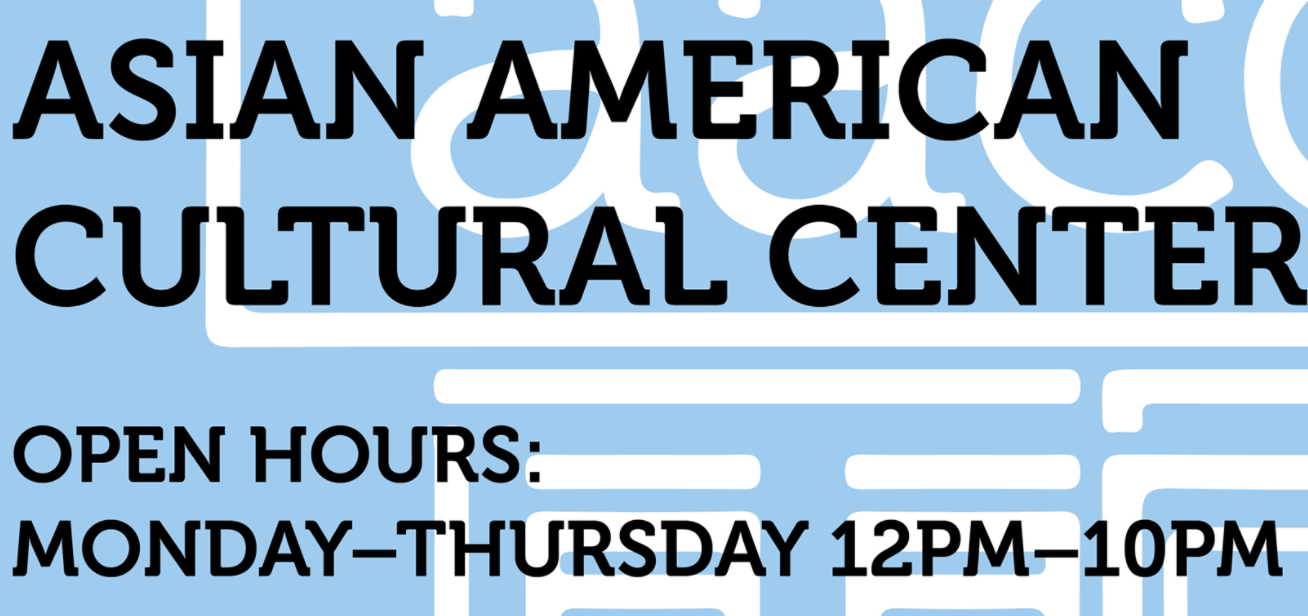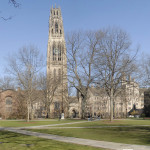Statement of Purpose: The goal of the Asian American Cultural Center’s Oral History Project is to highlight the individual stories of our fellow New Haven and Yale community members. These oral histories share anecdotes, reflections, and lessons from our interviewee’s family histories and personal lives. It is more important now than ever to share our personal narratives and listen to others.
If you are interested in becoming involved in this exciting project, or simply wish to meet new people and enjoy soul food, join the AACC on March 6 for the Oral History Launch Dinner.
Derek Mubiru
Derek Mubiru is a sophomore majoring in East Asian Studies, and he serves as one of the co-heads of the Asian American Cultural Center (AACC). He was born in Hong Kong, and was raised in Hainan – an island south of Taiwan – by his grandmother for two and a half years. After returning to Hong Kong for kindergarten, he came to San Antonio, Texas at the age of four. In this interview, Derek explores his relationship with his Blackness and Ugandan heritage, and how it has informed his political consciousness and his work with Asian American communities at Yale.
What’s your earliest memory in the United States?
Going back, I have a couple of pretty strong memories from childhood, and a lot of them are actually tied to this awakening of my racial identity. My father is from Uganda. For those of you who don’t know me, I look completely Asian. People often assume my father must have been a second-generation Chinese man who moved to Uganda, or that maybe generations before him moved to Uganda. But my father is a very dark-skinned man. I have a memory, from when I was 8 years old, where I was painfully aware of color. I was at a vacation bible school that was being put on by my church, and there was an African American woman leading a workshop for us kids. At one point, I turned to her daughter, an African American girl, and [used a slur]. My father was right next to me, and I still remember the feeling of naive shock because I had said those words not with the intention of being discriminatory – and of course without the knowledge or complete understanding of African American history and African colonialism. But I remember looking at my father’s face, and instantly knowing that there was something wrong with what I had just said. My father took me aside, and he told me, “Son, I am your father. I am a Black man.” I think that’s one of my most powerful memories growing up, and when I think about the jeers, discrimination, and the hateful and hurtful words that African Americans experience today because of the color of their skin, I’m reminded that- even as a child with a Black father- I was still able to go out and say those words. That’s kind of my earliest recollection of handling color and realizing that it was something that could be used to hurt people. The horrible thing is that I hurt a man I respect very much, and have always respected.
Many say that, in regards to the current political moment, we are living in the Third Reconstruction. You simultaneously have extreme state backlash and measures to suppress freedom struggles led by Black Americans. How do you interpret or understand your relationship with this moment in terms of your Blackness, and being active in the Asian American community here?
It’s interesting that you refer to this time as the Third Reconstruction. When we think about the idea of Reconstruction, we think about building a new political landscape and what’s that meant for people of color: a safer space in their country and their community, and an equal footing. When I came to Yale, there was this idea that other people and I shared. I think that our attitude was one of complacency: thinking that things were just fine as they are right now. But many people who do not understand the African American experience think that the current situation is fine, that the fight has been fought and the battle has been won. Nobody can say that progress has been made because nobody can deny that there are atrocities still happening. So when we consider the Third Reconstruction, I think that the most ardent opposition to these kinds of ideals is made up of people who share that sentiment, where they think that things are just fine and that these communities that are rising up are making something out of nothing.
This last semester at Yale, the landscape was very racially charged. There was a lot of emotion, a lot of pain, and a lot of questions that I was trying to figure out… whether or not I as an African and as an Asian could still sit back, be complacent about things, and still think that everything was okay. To be honest, when I came to Yale, I was still seeking out the answers to the many questions I asked myself about my own identity, in the sense that I would be mobilizing my communities to affect change on a large scale. I think the way I wanted to approach these questions was understanding my own roots, my own origins, and my culture- particularly my Ugandan culture. So when I saw many of my friends organizing, rising up, and leading these discussions last semester, I was wondering: do I have a duty to do these things? Am I responsible for partaking? Is this something that has been passed on to me?
Because I was working at the AACC, I was already kind of implicated in this sort of the understanding that what I did at Yale was to serve the community. The community was embroiled in a battle and was in pain. At that time, I asked myself what it meant to be Asian American especially because that was the community that I served, and that was the community that I could have the biggest impact on. I am involved in the Asian American community because Asian Americans will look at me and they won’t think anything is out of place. They will understand that “this is an Asian American person,” and he can empathize with me. He has shared the culture that at least comes from the same region or the same part of the globe that I am from, and he is someone that I can trust because he looks like me. I cannot convey that same message to fellow Africans or African Americans on campus. That is why I am not as involved with them, and that is why I question any emotion towards that involvement sometimes.
I think the whole idea of an Asian identity kind of fills up a social niche for me. It’s beginning to fill up an academic niche in terms of my own interest in curriculum here at Yale. I think that my closest ties are to Chinese culture specifically because my family is Chinese, and through that I feel this sense that I do have a home- somewhere that is not here. That is a home I miss and long for. I think that at the end of the day it’s really a matter of family, and really trying to emulate that sense of security here at Yale.
We were hoping you could share some of the actions you have taken in trying to answer your questions [of identity]. What advice can you give someone at Yale who might have a similar background or similar questions as you?
You also mentioned that your ties to the Asian American community here are very much about your legibility as an Asian person versus as a Black person, and that raises some questions about why is it that those two things are often seen as irreconcilable or cannot exist in the same person/body, and what it means for Asian Americans to not be seeing Black Asians as members of our communities. You could talk about that as well, if that’s a question you have grappled with and if you attempted to address it here.
The way Black people and Asian people navigate the American landscape is so different. The two niches that these two groups occupy are very different. The way they are perceived in popular culture is very different, and this has to do with the narratives that are attached to these two groups. I feel that often times we focus more on our origins and how our origins make us different. That aspect makes us focus less on a future that we can share together as people of color, and I think that that is the reason why there’s been less of that binding tie.
When I was applying for Yale, my essay was about looking Asian and being black, and how it’s inspired a curiosity in me. How do I interact with people from similar backgrounds, and how could I use this unique background of mine to communicate and cross a lot of barriers that other people may have? This may sound a little bit selfish, especially when I’m pondering all these things, but my primary goal still is one of self-discovery. I mentioned earlier that part of what ties me to China is this idea that it is a home for me. I plan on visiting Uganda this summer, and the big question in my head is if, when I get to Uganda, I’ll have that same feeling or if it’ll just feel completely strange, utterly foreign, and alien. If I have the latter sensation, I wonder if that would create more conflicts or if that’ll bring resolution to how I am handling the questions about my current identity. I’ve met with a couple of Ugandan students here at Yale, and I’ve gotten to talk to them about home. It’s really interesting because we can connect on a lot of things that nobody else at Yale can connect about. At the end of the day, it’s nice to know that I am Ugandan. I belong to this group. We can talk about nursery rhymes, about areas in Uganda and things like that- that no one else would know about. It’s because, you know, we’re Ugandan. But when I’m sitting down with these people, the question running through my head is, “But could I ever be as Ugandan as you are?” Could I ever occupy that space? Not only in the minds or perception of others, but even for myself?
One of the biggest goals I have for this summer when I go to Uganda is to find stories – traditional African stories – and put them down on paper. My father suggested this; he wants me to make a book of my experience as Ugandan and to include the stories that he told me when I was younger in this book. So, I’m hoping to do this research this summer and hopefully bring this book to fruition.
I’ve considered the possibility of adding some sort of foreword to the book or discussing my background because I’ve felt so compelled to explore my background. Another option I also have is… I just want to leave my name there: Derek Mubiru. It’s a Ugandan name. And I’m wondering whether I want to publish a photo of myself in that book, you know? If someone picks up the book and reads through its stories, it will be by another Ugandan person who wrote it. I’m wondering if I would somehow feel more fulfilled with the latter option as opposed to the former.
As co-head this year, talking about your vision or goals might be important in bringing out what you want to see in our community. Could you talk more about that?
When I was applying for the job, something that I mentioned in my own interview was how I wanted there to be a lot of collaboration between the Houses, and that still stands. That’s a vision I want, and the programming I was most committed to was the First Year Intercultural Dinner. It really was something that I had been wanting to do with my position at the AACC: to bring the cultural centers together and be a representative of the Asian American community. As a co-head this year, I didn’t realize how much our jobs have been restructured or tailored to meet the needs of these constituent groups in our community. So, I find that a lot of my job is being in contact with the cultural centers, but that’s been put on the back burner when it comes to meeting the needs of our own community: whether that be questions about programming or funding, being in communication with alum, or putting on collaborative events. I feel that’s what takes up the most of my time right now, and it’s very different from how I had envisioned it. I was very excited last semester when we put on the Intercultural Hike with all four cultural centers. Now I know a lot of the staffers at the other Houses, and it’s just pleasant knowing that you are connected to some extent. I’m trying to figure out how you can work in this sort of area of mutual respect- in this area of respect for the purity of what these houses are doing for their communities, in that we can never come in and tell the NACC how to do their job because the community that they’re serving is the one they belong to, while at the same time trying to figure out how the AACC can serve that community without necessarily being a part of it. How do you make the goals and ends of all these centers meet?



